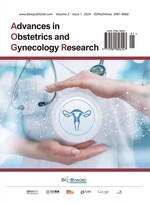Abstract
Objective: To determine the attitudes of women in the early postpartum period towards family planning and the factors affecting them. Method: The sample of the cross-sectional study consisted of 243 women in the postpartum clinics of a public hospital. Data for the study were collected between June and July 2022. Results: The average age of women was 28.17 ± 5.42 years, and the average number of children was 3.51 ± 0.89. In addition, 46.5% of women were illiterate and 73.7% want children again. The mean score of the women’s family planning attitude scale was 90.8 ± 8.10. The family planning attitude scale average scores of women with higher education levels, living in the city center, and having their pregnancy follow-up done in a private hospital were higher. It was determined that the mean score of the scale was lower for women with a higher age at their own age, spouse’s age, age at marriage and first gestational age, and women who want to have children again (P < 0.05). Conclusion: The research showed that women’s attitudes towards family planning in the early postpartum period were positive, but not at the desired level.
References
World Health Organization (WHO), Maternal Mortality, viewed 10 October 2022, https://www.who.int/news-room/fact-sheets/detail/maternal-mortality
Republic of Turkey Ministry of Health, Health Statistics Yearbook 2018, viewed 10 October 2022, https://sbsgm.saglik.gov.tr/Eklenti/36134/0/siy2018trpdf.pdf
World Health Organization (WHO), Family Planning/Contraception Methods, viewed 10 October 2022, https://www.who.int/news-room/fact-sheets/detail/family-planning-contraception%20%20/
Turkey Demographic and Health Survey 2018. Hacettepe University Institute of Population Studies, Ankara, Turkey, viewed 10 October 2022, http://www.sck.gov.tr/wp-content/uploads/2020/08/TNSA2018_ana_Rapor.pdf
Tezel A, Gönenç I, Akgun S, et al., 2015, Kadinlarin Aile Planlamasina Yönelik Tutumlari ve Etkileyen Faktörler [Women’s Attitudes Towards Family Planning and Influencing Factors]. Anadolu Hemsirelik ve Saglik Bilimleri Dergisi, 18(3). https://doi.org/10.17049/ahsbd.23634.
Örsal Ö, Kubilay G, 2007, Aile Planlamasi Tutum Ölçeginin Gelistirilmesi [Development of the Family Planning Attitude Scale]. Florence Nightingale J Nurs, 15(60): 155–164.
Senturk Erenel A, Kavlak T, Bingöl B, 2011, Kadinlarin Dogum Sonrasi Alti ay Sonunda Aile Planlamasi Yöntemi Kullanma Durumu [Women’s Use of Family Planning Methods Six Months After Childbirth]. Van Med J, 2(18): 68–76.
Darney BG, Saavedra-Avendano B, Sosa-Rubi SG, et al., 2016, Comparison of Family-Planning Service Quality Reported by Adolescents and Young Adult Women in Mexico. Int J Gynecol Obstet, 134: 22–28. https://doi.org/10.1016/j.ijgo.2015.12.003
James S, Toombs M, Brodribb W, 2018, Barriers and Enablers to Postpartum Contraception Among Aboriginal Australian Women: Factors Influencing Contraceptive Decisions. Aust J Prim Health, 24(3): 241–247. https://doi.org/10.1071/PY17041
Yuvaci HU, Cevrioglu AS, 2017, Emzirme ve Aile Planlamasi [Breastfeeding and Family Planning]. Turkiye Klinikleri Journal of Pediatric Nursing – Special Topics, 3(2): 104–111.
Turkish Statistical Institute (TÜ?K) News Bulletin. Birth Statistics, 2021, viewed 11 October 2022, https://data.tuik.gov.tr/Bulten/Index?p=Dogum-Istatistikleri-2021-45547
Eryilmaz N, Ege E, 2016, Dogum Sonu Dönemdeki Kadinlarin Aile Planlamasi Konusundaki Tutumlari ve Iliskili Faktörler [Attitudes of Women Towards Family Planning During the Postpartum Period and Related Factors]. Journal of Human Sciences. 13(2): 3389–3401. https://doi.org/10.14687/jhs.v13i2.3812
Gavas E, Inal S, 2019, Turkiye’de Kadinlarin Aile Planlamasi Yöntemleri Kullanma Durumlari ve Tutumlari: Sistematik Derleme [The Status and Attitudes of Women Towards Family Planning Methods in Turkey: A Systematic Review]. Saglik ve Yasam Bilimleri Dergisi, 1(2): 37–43. https://doi.org/10.33308/2687248X.201912118
Egelioglu Cetisli N, Kahveci M, Isik S, et al., 2020, Kadinlarin Postpartum Kontraseptif Tercihleri ve Tutumlari [Women’s Postpartum Contraceptive Preferences and Attitudes]. Journal of Academic Research in Nursing. 6(1): 67–72. https://doi.org/10.5222/jaren.2020.37233
Nazik F, Mumcu S, Sönmez M, et al., 2021, 15–49 Yas Evli Kadinlarin Aile Planlamasina Iliskin Tutumlarinin Belirlenmesi [Determination of Attitudes Towards Family Planning Among Married Women Aged 15–49]. Ordu Üniversitesi Hemsirelik Çalismalari Dergisi, 4(3): 326–336. https://doi.org/10.38108/ouhcd.881578
Avci S, Mutlu S, Yigit F, 2021, Evli Kadinlarin Aile Planlamas? Yöntem Tercihlerine EtkiEden Faktörler [Factors Influencing Married Women’s Family Planning Method Preferences]. Ebelik ve Saglik Bilimleri Dergisi, 4(2): 128–138.
Varol ZS, Çiçeklioglu M, Taner S, 2019, Postpartum Dönemdeki Kadinlarin Aile Planlamasi Tutum Ölçeginin Gelistirilmesi [Development of the Postpartum Women’s Family Planning Attitude Scale], specialization thesis, Ege Üniversitesi.
Gözukara F, Kabalcioglu F, Ersin F, 2015, Sanliurfa Ilinde Kadinlarin Aile Planlamasina Iliskin Tutumlarinin Belirlenmesi [Determination of Women’s Attitudes Towards Family Planning in Sanliurfa Province]. Harran Üniversitesi Tip Fakultesi Dergisi, 12(1): 9–16.
Bucak F, Kahraman S, 2022, Mevsimlik Tarim Isçisi Gebe Kadinlarin Aile Planlamasina Yönelik Tutumlarinin Belirlenmesi [Determination of Seasonal Agricultural Worker Pregnant Women’s Attitudes Towards Family Planning]. Gevher Nesibe Tip ve Saglik Bilimleri Dergisi, 5(7): 61–66. https://doi.org/10.46648/gnj.89
Mukhopadhyay P, Chaudhuri RN, Paul B, 2020, Hospital-Based Perinatal Outcomes and Complications in Teenage Pregnancy in India. J Health Popul Nutr, 28(5): 494–500. https://doi.org/10.3329/jhpn.v28i5.6158.
Mutihir JT, Eko P, 2011, Stillbirths at the Jos University Teaching Hospital: Incidence, Risk, and Etiological Factors. Niger J Clin Pract, 14(1): 14–18. https://doi.org/10.4103/1119-3077.79233
Chen CW, Tsai CY, Sung FC, et al., 2010, Adverse Birth Outcomes Among Pregnancies of Teen Mothers: Age Specific Analysis of National Data in Taiwan. Child: Care, Health and Development, 36(2): 232–240. https://doi.org/10.1111/j.1365-2214.2009.01039.x
Çitak Bilgin N, Tokur Kesgin M, 2020, Kanatli Sektörunde Çalisan Kadinlarin Aile Planlamasi ve Acil Kontrasepsiyona Iliskin Bilgi ve Tutumlarinin Belirlenmesi [Determination of Knowledge and Attitudes of Women Working in the Poultry Sector Regarding Family Planning and Emergency Contraception]. Saglik Bilimleri Dergisi, 29(2): 123–132. https://doi.org/10.34108/eujhs.754337
Bongaarts J, Watkins SC, 1996, Social Interactions and Contemporary Fertility Transitions. Population and Development Review, 22(4): 639–682.
Turk R, Terzioglu F, 2019, Attitudes of Couples Towards Withdrawal Method in Birth Control. Cukurova Medical Journal, 44(3): 794–803. https://doi.org/10.17826/CUMJ.444467
Erdogan N, Tuncer G, 2016, Kamu Saglik Hizmetlerinde Koniklik Etkisi: Ikili Lojistik Regresyon Analizi [Conicity Effect in Public Health Services: Binary Logistic Regression Analysis]. Electronic Journal of Vocational Colleges, 6(2): 67–72.
Mavi Aydogdu SG, Akça E, 2018, Amasya il Merkezindeki Aile Sagligi Merkezleri’ne Basvurankadinlarin Aile Planlamasi Yöntem Kullanimi ve Etkileyen Faktörler [Use of Family Planning Methods and Influencing Factors Among Women Applying to Family Health Centers in the City Center of Amasya. Surekli Tip Egitimi Dergisi, 27(6): 384–391.
